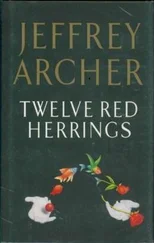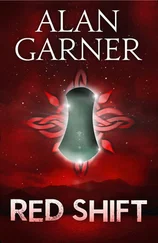Alan Bradley - A Red Herring Without Mustard - A Flavia de Luce Novel
Здесь есть возможность читать онлайн «Alan Bradley - A Red Herring Without Mustard - A Flavia de Luce Novel» весь текст электронной книги совершенно бесплатно (целиком полную версию без сокращений). В некоторых случаях можно слушать аудио, скачать через торрент в формате fb2 и присутствует краткое содержание. Жанр: Старинная литература, на русском языке. Описание произведения, (предисловие) а так же отзывы посетителей доступны на портале библиотеки ЛибКат.
- Название:A Red Herring Without Mustard: A Flavia de Luce Novel
- Автор:
- Жанр:
- Год:неизвестен
- ISBN:нет данных
- Рейтинг книги:4 / 5. Голосов: 1
-
Избранное:Добавить в избранное
- Отзывы:
-
Ваша оценка:
- 80
- 1
- 2
- 3
- 4
- 5
A Red Herring Without Mustard: A Flavia de Luce Novel: краткое содержание, описание и аннотация
Предлагаем к чтению аннотацию, описание, краткое содержание или предисловие (зависит от того, что написал сам автор книги «A Red Herring Without Mustard: A Flavia de Luce Novel»). Если вы не нашли необходимую информацию о книге — напишите в комментариях, мы постараемся отыскать её.
A Red Herring Without Mustard: A Flavia de Luce Novel — читать онлайн бесплатно полную книгу (весь текст) целиком
Ниже представлен текст книги, разбитый по страницам. Система сохранения места последней прочитанной страницы, позволяет с удобством читать онлайн бесплатно книгу «A Red Herring Without Mustard: A Flavia de Luce Novel», без необходимости каждый раз заново искать на чём Вы остановились. Поставьте закладку, и сможете в любой момент перейти на страницу, на которой закончили чтение.
Интервал:
Закладка:
How I adored this man! Here we were, the two of us, engaged in a mental game of chess in which both of us knew that one of us was cheating.
At the risk of repetition, how I adored this man!
And that had been the end of it. He had asked me a few more questions: whether I had seen anyone else about, whether I had heard the sound of a motor vehicle, and so forth. And then he had gone.
At one point I had wanted to tell him more, just to prolong the pleasure of his company. He’d have been thrilled to hear about how I had caught Brookie prowling about our drawing room, for instance, to say nothing about my visits to Miss Mountjoy and to Brookie’s digs. I might even have confided in him what I’d found at Vanetta Harewood’s house in Malden Fenwick.
But I hadn’t.
As I stood musing in the foyer, the slight squeak of a shoe on tile caught my attention, and I looked up to find Feely staring down at me from the first-floor landing. She’d been there all along!
“Little Miss Helpful,” she sneered. “You think you’re so clever.”
I could tell by her attitude that she had not yet consulted her bedroom mirror.
“One tries to be of assistance,” I said, casually dusting a few stray smudges of French chalk from my dress.
“You think he likes you, don’t you? You think a lot of people do—but they don’t. No one likes you. There may be a few who pretend to, but they don’t—not really. It’s such a pity you can’t see that.”
Amplified by the paneling of the foyer, her voice came echoing all the way down from among the cherub-painted panels of the ceiling. I felt as if I were the prisoner at the bar, and she my accuser.
As always when one of my sisters turned on me, I felt a strange welling in my chest, as if some primeval swamp creature were trying to crawl out of my insides. It was a feeling I could never understand, something that lay beyond reason. What had I ever done to make them detest me so?
“Why don’t you go torture Bach?” I flung back at her, but my heart was not really in it.
It always surprises me after a family row to find that the world outdoors has remained the same. While the passions and feelings that accumulate like noxious gases inside a house seem to condense and cling to the walls and ceilings like old smoke, the out-of-doors is different. The landscape seems incapable of accumulating human radiation. Perhaps the wind blows anger away.
I thought about this as I trudged towards the Trafalgar Lawn. If Porcelain chose to go on believing that I was the monster who had bashed in her grandmother’s skull with—with what?
When I had found Fenella lying on the floor of the caravan, the inside of the wagon had been, except for the blood, as neat as a pin: no bloody weapon flung aside by her attacker: no stick, no stone, no poker. Which seemed odd.
Unless the weapon had some value, why would the culprit choose to carry it away?
Or had it been ditched? I’d seen nothing to suggest that it had.
Surely the police would have gone over the Palings with a microscope in search of a weapon. But had they found one?
I paused for a moment to stare up at the Poseidon fountain. Old Neptune, as the Romans called him, all muscles and tummy, was gazing unconcernedly off into the distance, like someone who has broken wind at a banquet and is trying to pretend it wasn’t him.
His trident was still held up like a scepter (he was, after all, the King of the Sea) and his fishnets lay in a tangle at his feet. There wasn’t a trace of Brookie Harewood. It was hard to believe that, just hours ago, Brookie had dangled dead here—his body a gruesome addition to the sculpture.
But why? Why would his killer go to the trouble of hoisting a corpse into such a difficult position? Could it be a message—some bizarre form of the naval signal flag, for instance?
What little I knew about Poseidon had been gained from Bullfinch’s Mythology , a copy of which was in the library at Buckshaw. It was one of Daffy’s favorite books, but since there was nothing in it about chemistry or poisons, it didn’t really interest me.
Poseidon was said to rule the waters, so it was easy enough to see why he was chosen to adorn a fountain. The only other waters within spitting distance of this particular Poseidon were the river Efon at the Palings and Buckshaw’s ornamental lake.
Brookie had been hung from the trident much like the way a shrike, or larder bird, impales a songbird on a thorn for later use—although it seemed unlikely, I thought, that Brookie’s killer planned to eat him later.
Was it a warning, then? And if so, to whom?
I needed to have a few hours alone with my notebook, but now was not the time. There was Porcelain to deal with.
I wasn’t finished with Porcelain. As a token of goodwill, I would not be put off by her childish behavior—nor would I take offense. I would forgive her whether she liked it or not.
I can’t claim that Gry was happy to see me arriving at the Palings, although he did look up for a moment from his grazing. A fresh bale of hay strewn nearby told me that Constable Linnet was on the job, but Gry seemed to prefer the green salad of weeds that grew along the river’s edge.
“Hello!” I shouted to the caravan, but there was no answer. The delicate instrument that was the back of my neck told me, too, that the glade was deserted.
I didn’t remember Porcelain locking the caravan when we left together, but it was locked now. Either she had returned and found the key, or somebody else had done so.
But someone had been here and—if I could believe my nose—quite recently.
Warmed by the sun, the wooden door was releasing an odor that did not belong here. As I would do in my laboratory with a chemical, I used my cupped fingers to scoop air towards my nostrils.
No doubt about it: A definite odor lingered near the door of the caravan—an odor that most certainly had not been on the outside of the caravan before: the smell of fish.
The smell of the sea.
 SIXTEEN
SIXTEEN 
“YOU’RE IN MY LIGHT,” Daffy said.
I had intentionally planted myself between her book and the window.
It was not going to be easy to ask my sister for assistance. I took a deep breath.
“I need some help.”
“Poor Flavia!”
“Please, Daff,” I said, despising myself for begging. “It’s about that man whose body I found at the fountain.”
Daffy threw down her book in exasperation. “Why drag me into your sordid little games? You know perfectly well how much they upset me.”
Upset her? Daff? Games?
“I thought you loved crime!” I said, pointing to her book. It was a collection of G. K. Chesterton’s Father Brown mysteries.
“I do,” she said, “but not in real life. The antics you get up to turn my stomach.”
This was news to me. I’d file it away for later use.
“And Father’s almost as bad,” she added. “Do you know what he said at breakfast yesterday, before you came down? ‘Flavia’s found another body.’ Almost as if he was proud of you.”
Father said that? I could hardly believe it.
The revelations were coming thick and fast! I should have thought of talking to Daffy sooner.
“It’s true,” I said. “I did. But I’ll spare you the details.”
“Thank you,” Daffy said quietly, and I thought she might actually have meant it.
“Poseidon,” I said, taking advantage of the partial thaw. “What do you know about Poseidon?”
This was throwing down the gauntlet. Daffy knew everything about everything, and I knew she couldn’t resist showing off her uncanny power of recall.
Читать дальшеИнтервал:
Закладка:
Похожие книги на «A Red Herring Without Mustard: A Flavia de Luce Novel»
Представляем Вашему вниманию похожие книги на «A Red Herring Without Mustard: A Flavia de Luce Novel» списком для выбора. Мы отобрали схожую по названию и смыслу литературу в надежде предоставить читателям больше вариантов отыскать новые, интересные, ещё непрочитанные произведения.
Обсуждение, отзывы о книге «A Red Herring Without Mustard: A Flavia de Luce Novel» и просто собственные мнения читателей. Оставьте ваши комментарии, напишите, что Вы думаете о произведении, его смысле или главных героях. Укажите что конкретно понравилось, а что нет, и почему Вы так считаете.












